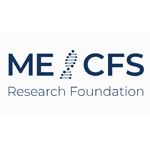This text was published by ME/CFS Research Foundation as a press release.
Hamburg, Juli 1st, 2022
The newly established non-profit ME/CFS Research Foundation is now asking for donations for research into the diseases ME/CFS (Myalgic Encephalomyelitis/Chronic Fatigue Syndrome) and Long COVID. ME/CFS usually occurs after infectious diseases, including COVID-19. Even before the pandemic, there were an estimated 300,000 people affected in Germany, including 40,000 children and young people. Now there is a rapidly growing number of Long COVID patients. Until now, there has been hardly any public funding for research into these diseases. Leading MDs and patient organisations welcome the initiative.
The ME/CFS Research Foundation was founded by Jörg Heydecke (relative of a ME/CFS patient, entrepreneur) and Martin Hippe (ME/CFS patient, lawyer). They want to promote and finance biomedical, scientific research topics and projects at university research institutions. The foundation is already networked with many ME/CFS and Long COVID researchers. An international scientific advisory board is being established. There is close cooperation with the major patient organisations (see below). The first financial commitments from sponsors have been made.
Joerg Heydecke (Managing Director): „Before mid-2021, there was no (!) public research funding for ME/CFS in Germany. For me as a patient's relative, it's unbelievable: there is this really serious illness, about 60% of the patients are unable to work. And instead of taking care of these people thoroughly, doctors often fob them off with embarrassing diagnoses, e.g. the long-disproved hypothesis that it is a psychosomatic illness - even at university hospitals!" Nobody except those patients affected seems to care about this, Heydecke criticises: "It was only through Long COVID that these diseases were recognised as a relevant problem. In the meantime, there is some initial research funding at the federal and state levels in Germany. This is urgently needed and very welcome, of course. But the amounts provided are still far from sufficient."
Besides medical information and further medical training, biomedical research is one of the most important building blocks for solving the problem, i.e. dealing with ME/CFS patients in a medically and socially appropriate way. There are still no biomarkers for the reliable diagnosis of these diseases. Patients are therefore often misdiagnosed and treated incorrectly or not at all. Causal therapies are also lacking. Even symptom-oriented therapies are only available sporadically.
Martin Hippe (Co-Gründer): "As a long-time patient and from my network, I personally experience the dramatic consequences of medical and social neglect in ME/CFS every day. And this is in the middle of Germany - the country with one of the otherwise best health and social systems in the world. There are interesting research approaches to ME/CFS - in Germany and internationally. But there are far too few researchers, projects and budgets available for this. That is why Joerg Heydecke and I aim to address the problem of research funding directly and that’s why we started the ME/CFS Research Foundation. If ME/CFS research picks up speed now, we are confident that helpful findings are realistically feasible over the next few years."
Comments by German ME/CFS* and Long COVID experts:
Prof. Dr. med. Carmen Scheibenbogen (Charité University Medicine) (link): „ME/CFS is a severe disease of the nervous and immune system that usually occurs after an infection. Fatigue, low resilience, pain, circulatory problems and impaired thinking are only part of the complex clinical picture. Many people with Long COVID suffer from ME/CFS. I am pleased that the ME/CFS Research Foundation will enable research projects on a larger scale than before in the future."
Prof. Dr. med. Uta Behrends (Clinic for Children and Adolescents Medicine, Klinikum Rechts der Isar, Technical University Munich) (link): „Participation and quality of life are often significantly limited even in very young patients. To date, there are neither reliable biomarkers nor causal therapies available. Misdiagnoses of patients and consequential damage are frequent. We urgently need sufficient research budgets so that committed researchers from all the biomedical disciplines concerned are able to understand and clarify the causes for ME/CFS, and to establish effective therapies. This is why we urgently need not only public funding but also private support from organisations such as the ME/CFS Research Foundation."
Comments by German patient organisations:
German Society for ME/CFS (Deutsche Gesellschaft für ME/CFS), Sebastian Musch, board member (link): „Since 2016, we have been committed to the recognition and medical education of ME/CFS as well as to the training of medical doctors. Since the establishment of the ME/CFS Research Foundation, we have been in close contact and are convinced that their focus on biomedical research will make an important contribution to improving the situation in this field.“
Long COVID Germany (Long COVID Deutschland), Dr. med. Claudia Ellert, speaker (link): „From a medical perspective, Long COVID and ME/CFS are closely related and both diseases have so far been shockingly under-researched. In addition to political recognition (e.g. in the coalition agreement of the German government), a joint effort is now needed to effectively and comprehensively establish research, diagnosis and treatment. The commitment of the ME/CFS Research Foundation comes at the right time and we look forward to a constructive cooperation!“
Fatigatio e.V. - Federal Association ME/CFS (Fatigatio e.V. – Bundesverband ME/CFS), Dr. Lieseltraud Lange-Riechmann, speaker of the board (link): „Fatigatio e. V., as the largest German ME/CFS patient organisation, has been campaigning for the medical and social recognition of ME/CFS as an organic disease since 1993. We welcome the establishment of the ME/CFS Research Foundation as an important new organisation to advance research into this serious and common disease. We will actively support this goal in close cooperation.“
About ME/CFS Research Foundation (https://mecfs-research.org)
ME/CFS Research Foundation promotes and finances the development and expansion of biomedical research on ME/CFS (Myalgic Encephalomyelitis/Chronic Fatigue Syndrome) and Long COVID. Due to the lack of research to date, there is a lack of medical awareness, recognition, training, diagnosis, therapy and care for patients with these complex, long-term illnesses. As a team of patients and relatives, we advocate for an adequate number of university research institutions and projects. In doing so, we cooperate with ME/CFS patient organisations that have long been committed to improving the situation. Our commitment initially focuses on Germany. We aim to expand our work to other European countries as a next step.
Address:
ME/CFS Research Foundation gGmbH
Ballindamm 27, D-20095 Hamburg
+49 (40) 226328530
https://mecfs-research.org
Account for donations: DE35 2004 0000 0628 5316 00 (Commerzbank AG)
ME/CFS Research Foundation is a non-profit limited liability company and fulfils the statutory requirements according to §§ 51, 59, 60 and 61 AO (German tax laws). It may issue donation receipts within the meaning of Section 10b of the German Income Tax Act.






